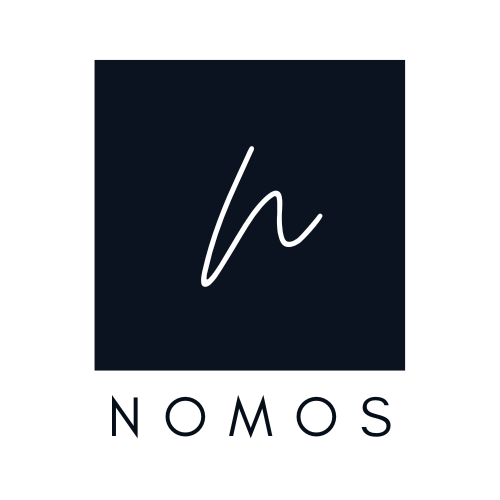Getting Started
What is NOMOS?
What is NOMOS?
How is NOMOS different from other AI frameworks?
How is NOMOS different from other AI frameworks?
- Auditability: Every decision and step is traceable and logged
- Structured Workflows: Define clear, multi-step processes instead of single prompts
- Provider Agnostic: Works with OpenAI, Anthropic, Google, Mistral, Ollama, and more
- Production Ready: Built-in error handling, retries, and monitoring
- Playground: No-code interface for rapid prototyping
Do I need to know Python to use NOMOS?
Do I need to know Python to use NOMOS?
- Playground: No-code drag-and-drop interface
- YAML Configuration: Declarative configuration files
- Python API: Full programmatic control for advanced use cases
- CLI: Command-line interface for quick setup and deployment
What are the system requirements?
What are the system requirements?
- Python: 3.8 or higher
- Memory: Minimum 512MB RAM, 2GB+ recommended for complex agents
- Storage: 100MB for basic installation, more for models and data
- Network: Internet connection for LLM API calls (unless using local models)
- OS: Windows, macOS, or Linux
Installation & Setup
How do I install NOMOS?
How do I install NOMOS?
Why am I getting import errors?
Why am I getting import errors?
- Ensure you installed the correct extras:
pip install nomos[openai] - Check Python version:
python --version(must be 3.8+) - Try upgrading pip:
pip install --upgrade pip - Use virtual environment to avoid conflicts
- Check for conflicting package versions
How do I set up API keys?
How do I set up API keys?
.env file in your project directory.Can I use NOMOS without API keys?
Can I use NOMOS without API keys?
LLM Providers & Models
Which LLM providers are supported?
Which LLM providers are supported?
- OpenAI: GPT-4o, GPT-4o-mini, GPT-4-turbo, GPT-3.5-turbo
- Anthropic: Claude 3.5 Sonnet, Haiku, Opus
- Google: Gemini 2.0 Flash, Gemini 1.5 Pro/Flash
- Mistral: Large, Medium, Small, Ministral
- Ollama: Local models (Llama, Qwen, Codestral, etc.)
- HuggingFace: Open source models via API
Which model should I choose?
Which model should I choose?
- Production: GPT-4o, Claude 3.5 Sonnet, Gemini 2.0 Flash
- Development: GPT-4o-mini, Claude 3.5 Haiku, Mistral Small
- Cost-sensitive: Ollama (local), GPT-4o-mini, Mistral Small
- Privacy: Ollama (local models)
- Coding: Claude 3.5 Sonnet, GPT-4o, Codestral
Can I switch between providers?
Can I switch between providers?
How do I handle rate limits?
How do I handle rate limits?
Development & Configuration
What's the difference between Python API and YAML?
What's the difference between Python API and YAML?
- YAML: Declarative, version-controlled, easier for non-programmers
- Python: Programmatic control, dynamic behavior, custom logic
How do I debug my agents?
How do I debug my agents?
Can I use custom tools and functions?
Can I use custom tools and functions?
How do I handle sensitive data?
How do I handle sensitive data?
- Use environment variables for API keys
- Implement data redaction in logging
- Use local models for sensitive data
- Configure memory retention policies
- Implement custom data filters
Deployment & Production
How do I deploy NOMOS agents?
How do I deploy NOMOS agents?
How do I scale NOMOS?
How do I scale NOMOS?
- Horizontal: Multiple agent instances behind load balancer
- Vertical: Increase CPU/memory for complex agents
- Redis: Shared state and session management
- PostgreSQL: Persistent storage for conversations
- Queue Systems: Async processing with Celery/RQ
What about monitoring and observability?
What about monitoring and observability?
- Structured logging with trace IDs
- Metrics collection (response time, error rates)
- Health check endpoints
- Integration with Prometheus/Grafana
- Custom analytics hooks
How do I handle errors in production?
How do I handle errors in production?
Performance & Optimization
How can I improve agent response time?
How can I improve agent response time?
- Use faster models (GPT-4o-mini vs GPT-4o)
- Implement response caching
- Reduce prompt length
- Use streaming responses
- Optimize tool execution
- Consider local models for simple tasks
How do I reduce LLM costs?
How do I reduce LLM costs?
- Choose appropriate model sizes
- Implement intelligent caching
- Use cheaper models for simple tasks
- Set token limits
- Batch similar requests
- Use local models when possible
What about memory usage?
What about memory usage?
- Configure conversation limits
- Use summary-based memory for long conversations
- Implement periodic cleanup
- Monitor memory usage in production
- Consider external storage for large datasets
Troubleshooting
My agent isn't responding correctly
My agent isn't responding correctly
- Check API keys and model availability
- Verify prompt engineering and instructions
- Review tool configurations
- Check for rate limiting
- Examine logs for error messages
- Test with simpler inputs first
I'm getting timeout errors
I'm getting timeout errors
- Increase timeout settings
- Use smaller, faster models
- Optimize prompt length
- Check network connectivity
- Implement retry logic
- Consider request batching
Installation issues on specific platforms
Installation issues on specific platforms
- Use WSL2 for better compatibility
- Install Visual C++ Build Tools
- Use conda instead of pip if issues persist
- Install Xcode Command Line Tools
- Use Homebrew for dependencies
- Check Python version from Homebrew
- Install development packages
- Check Python and pip versions
- Use virtual environments
Integration & Ecosystem
Can I integrate NOMOS with my existing systems?
Can I integrate NOMOS with my existing systems?
- REST API for web integration
- Python library for direct integration
- Webhooks for event-driven architecture
- CLI for script automation
- Docker containers for microservices
Does NOMOS work with databases?
Does NOMOS work with databases?
- Built-in SQLite for development
- PostgreSQL for production
- Redis for caching and sessions
- Custom database connectors
- File-based storage for simple use cases
Can I use NOMOS with other AI tools?
Can I use NOMOS with other AI tools?
- Vector databases (Pinecone, Weaviate, Chroma)
- ML frameworks (scikit-learn, PyTorch, TensorFlow)
- Data processing (pandas, NumPy)
- Web frameworks (FastAPI, Flask, Django)
- Workflow orchestrators (Airflow, Prefect)
Community & Support
How do I get help?
How do I get help?
- Documentation: Check our comprehensive guides
- GitHub Issues: For bugs and feature requests
- Discord: Real-time community chat
- GitHub Discussions: Q&A and general discussion
- Email: Direct contact with maintainers
How can I contribute?
How can I contribute?
- Report bugs and suggest features
- Improve documentation
- Submit code contributions
- Help other users in Discord
- Share your projects in the showcase
- Write tutorials and blog posts
Is there a roadmap?
Is there a roadmap?
- GitHub milestones for release planning
- Community voting on feature requests
- Regular updates in Discord announcements
- Quarterly roadmap reviews

